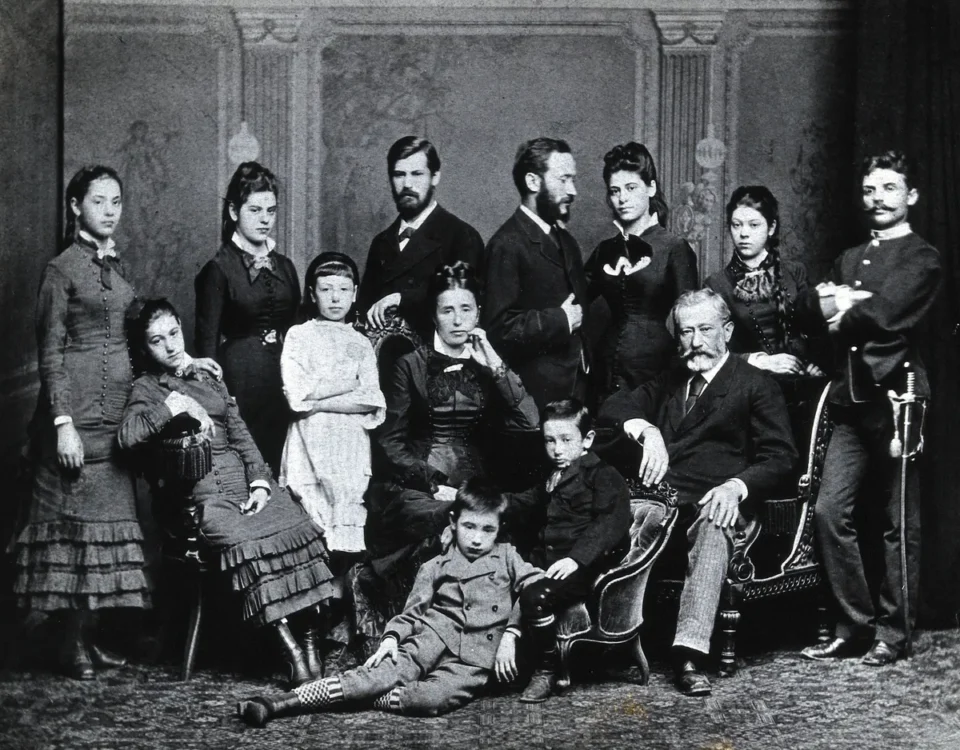
Fit in Medicine: Mastering Physical Fitness for Medical Students and Doctors
April 10, 2025
Balancing Faith and Medicine: Navigating Ramadan and Pre-Residency Prep
April 10, 2025Summary (TL;DR)
Surround yourself with motivated peers who share your goals, and maintain hobbies to preserve your personal identity amidst academic demands. Engage in meaningful relationships by mastering time management and distinguishing between critical ("glass ball") and flexible ("plastic ball") priorities.
Step out of your comfort zone to build connections, choosing quality conversations over small talk. Use free time wisely by exploring part-time jobs, research, reading, or relaxation activities.
Reflect on personal growth through journaling or blogging, and pick up hobbies that develop transferable skills for your medical career. Finally, remember that finding love in med school is possible by focusing on self-improvement and meaningful interactions.
Medical school is a journey filled with immense challenges, personal growth, and life-altering decisions. As you embark on this rigorous path, it's natural to question whether you can maintain a fulfilling life outside of academics. The whispers of doubt about sacrificing your social life and personal interests are common among medical students. However, overcoming these fears and finding balance is not only possible but essential for long-term success and happiness in the medical field.
Overcoming Fear and Finding Balance
Scary enough to make any man think twice, right? Well, trust me when I say that it's okay, you are not alone. You are not the first to have such intrusive thoughts and certainly not the last one. Such fears are quite literally given birth to in every healthcare professional's mind, believe it or not. "Then how do they act so cool and collected all the time as if they are all in control of their lives?", you ask. It's pretty simple; they employ strategies that allow them to manage both their academic responsibilities and personal lives effectively.
In this comprehensive guide, we'll delve into practical strategies that will help you maintain a satisfying life while excelling in your medical studies. From establishing proper sleep routines to managing meaningful relationships, these insights will prove invaluable throughout your medical journey.
Establishing a Proper Sleep Routine
I just cannot stress enough how important this is. So many students possessing immense potential have been lost owing to the lack of sound sleep. Being a medical student, you must be aware of the fact that your body has a natural circadian rhythm and how the pineal gland regulates the release of melatonin at night to ensure optimal functioning of your body and your mind.
How do you suppose you can mess with your hormone levels and deprive your body of its well-earned rest without incurring significant damage? Allow me to tell you: it is impossible. If you are not getting adequate sleep and/or you have abnormal sleeping hours, not only are you going to miss out on those morning lectures, but you are also going to have a greatly diminished learning capacity which will make med school much tougher than it already is.
Apart from the academic aspect, having a healthy sleep cycle is going to have immense health benefits which will stretch to your social life as well. A good night's sleep will keep you refreshed and energized throughout the day, which will profoundly increase the quality of your personal interactions and will certainly prevent you from becoming that one really irritable colleague who no one wants to socialize with.
Effective Study Habits and Time Management
Since we are talking about med school, studying effectively should probably go without saying, right? But since the benchmark is 'just passing' here, you would be surprised to know how many people take that at face value and become chronic procrastinators. "Let's skip this one test./It is too early to start studying./Chill, we'll start studying right before the exam." You will often hear them say.
Please DON'T fall prey to such inane arguments no matter how enticing they may sound, because they never work. Procrastinating everything and leaving off the entire syllabus till the 11th hour is one of the cruelest things you can do to yourself. Cramming everything right at the end is one of the poorest studying techniques which yield little to no understanding of the concepts applied in the subject.
Adding insult to injury, performing poorly in your assessments is inevitably bound to taint your self-esteem. You'll feel less stressed and much better about your self-control and exam scores if you start studying early and thoroughly. And of course, having a schedule can never harm you.
Maintaining Physical Fitness
Neglecting physical fitness is one of the most widely committed crimes by students of demanding fields. There's a safety net that we all like to fall back on in our heads: "Getting unfit due to the workload? Oh, a small price to pay for salvation. My time spent at the gym could be better spent studying." But trust me, that could not be further away from the truth.
Exercising regularly is one of the best gifts you can give yourself as proven by a research published in the Journal of Occupational and Environmental Medicine which indicates that workers who engage in moderate exercise have a higher standard of work and better performance than those who lead a sedentary lifestyle. Not only does regular exercise keep your body and mind in a healthy working condition but it also keeps you from becoming an unfit, unappealing mess. And honestly, who minds looking good?
By incorporating physical exercise, be it anything from zumba classes to working out at the gym, into your daily routine leads to a release of endorphins in your body which automatically boosts your mood. In addition to physical exercise, be extremely vigilant in regard to your diet. We have all seen students running on caffeine and energy drinks to keep up with the demands of their work but these poor souls often end up subjecting their bodies to a myriad of digestive and nutritional disorders.
Be wise enough to be careful with the macros of your diet and to not overdose on such stimulants because these 'quick fixes' promise long-term misery. Eating right and exercising can undoubtedly transform not only your body but your mind as well, giving access to newer levels of physical and mental energy and stamina.

Surrounding Yourself with the Right People
We are familiar with the famous "A man is reflected by the friends he keeps" quote and to be fair, they said so for a reason. Your selection of friends is quite possibly the most important determinant of your academic and social lives. Strive to find and associate yourself with people who share similar goals and values because trust me, this one decision will go a very long way.
If you are surrounded by people who have a very nonchalant approach towards their careers, they will more than often end up convincing you to bunk lectures and do all sorts of stuff except for what's actually conducive to your academics. Not only will you start to fall behind in your classes but you will also become increasingly pessimistic in the face of the challenging med school.
Sadly, it doesn't end there. Your company is going to shape your taste and your future choices profoundly. While some friends might introduce you to new research papers and medical advances, some might introduce you to new party circles and cool spots to hang out at. Make no mistake, have a very balanced approach in this regard or you are going to fall on either end of the spectrum, neither of which is preferable. Keep your eyes on your career but without missing out on the banter and cracking open a cold one with the boys!
The people you surround yourself with really do determine the kind of person you become. While you're probably older than ten and are no longer in your formative years, your friends still have the ability to influence you. It might very well be too late to fix your pessimistic attitudes or your edgy sense of humour, but having friends who know you well will form a powerful support network that can help you when you need it most.
Investing in your relationships is one of the most powerful things you can do to make yourself a better person and a safer medical practitioner, because knowing you have the safety and security that comes with a good support network can make you a more confident and self-assured doctor. If you only have a few minutes in your overwhelmingly busy day, give one of your friends a phone call; if you have a few hours, grab a coffee with them.
Holding on to Your Hobbies and Passions
It actually hurts my heart to see those artists who stopped painting, the guitarists who stopped playing, the writers who stopped writing and the list goes on, all citing the workload as the common factor. There's no doubting the fact that the medical profession is a very demanding one and asks for its fair share of sacrifices, but nothing should ever come at the expense of losing your identity.
The movies you watch, the music you listen to, the books you read; they all define you and you should always stay in touch with the things that shape you. It's not necessary to be overly indulgent in them to the point of disregarding your academic obligations, but not taking out the essential 'me time' will sooner or later drain you.
Taking essential breaks from studying is just as important as the act of studying itself. So no matter how busy your schedule might be, don't forget to take out some time for that book that you've been meaning to read or for watching that movie that has been on your bucket list for the longest time because you deserve that peace of mind.
Have you ever seen one of your medical student friends do a suture or delicate procedure, and simply been amazed that they had never done it before? Or maybe is there just that one friend who manages to hear all of the murmurs and crackles that you can't? These skills often stem from hobbies that develop transferable skills benefiting medical practice.
Playing the drums since age 12 has been a godsend for my auscultation abilities. There is nothing more awkward than standing over a patient, stethoscope on their chest, listening as hard as you can for their valvular pathologies, only to give up after fifteen seconds (an awkwardly long time to be standing over someone), head hanging in shame, to tell your attending you didn't hear anything – or so I'm told. The reality is, having a sense of rhythm and a keen ear has helped me hear virtually every pathology I've come across.
Being a cook in any capacity is one of the most stressful experiences in the world. You have to juggle twenty different things at once, and also be listening for the next order, and also be communicating with your other line cooks to see how long on the fish or if the garnish is ready. That ability to constantly multi-task in the face of overwhelming immediate stress has served me in two ways. Firstly, it's helped me learn strategies to cope with the overwhelming immediate stress of medical school; and secondly, sometimes it has helped almost acclimatise me to that stress, because no matter how tough medical school is, my last shift on the line was almost always harder.
Explaining the same thing over and over again without going mad is a definite skill most people don't have, but I think doing this literally daily in my high-school tutoring job has really developed my patience. I'm sure you've all met patients who won't stop going on and on about life lessons and persistently give you spiritual advice when all you can think about is how long it's been since you had anything to eat (probably over eight hours if your schedules are anything like mine). Most of my peers at that point would probably just leave; come up with some kind of excuse to go, and try to be more productive elsewhere. However, with my knack for patience developed in part by my experience tutoring, I've always been able to engage with those patients for as long as they want (til they even eventually end up sick of me sometimes!).
These patients have probably been brushed over countless times by busy nurses and busier residents, simply needing someone to talk to, and as a medical student, the least you can do is hear them out. I try to as much as I can, and I think tutoring has definitely helped with that. The main takeaway from photography and videography is just that it allows me to seriously judge all the people who took the pictures in most of our textbooks today. The absolute carelessness and disregard for the image vectors and lighting makes my brain itch, but maybe more importantly, the terrible angles and contrast make it difficult to identify what that particular skin lesion should actually look like.
The actual benefit that this hobby gave me is an instant appreciation of how all of the images actually matched up with the 3D anatomy. CT and MRI orientation never threw me off, because I had done more weird and wacky angles in my time behind the camera, and distinguishing AP from PA chest X-rays became a breeze when I picked up on where everything was compared to the thirds of the image.

Managing Meaningful Relationships
It is a truth universally acknowledged that a single med school student, in possession of a good fortune (of knowledge), probably has no time for a spouse (or partner, or friends.) Stuck in the violent whirlwind of assignments, tests and OSCEs, it is only natural to isolate ourselves from our non-medical peers and focus all our attention on the never-ending tasks at hand. After all, it is an understood notion that the words 'med school' and 'social life' are, more often than not, mutually exclusive.
However, the years pass in a blur, and it's only after you graduate and are standing on the precipice of adulthood that you look back and realize the one thing you missed out on all these years: human connection. From the day you enroll, the trajectory of your life has been more or less pre-determined. If you think "I'll study hard these 5 years and then party," please think again, because it only gets harder from here onwards.
Whilst it is no secret that med school demands a real sacrifice of one's time, it is important to remember that there is more to life than just studying. You see, it's not just these few years that are tough. Medical is one of those careers in which the hustle never ends. So at some point, you're going to have to ask yourself: For how long am I going to deny myself a very basic human need? This realization hit me during 2nd year when I ended up missing my grandmother's funeral because I had a test the same day and it ran late. Of course in hindsight, I should have missed the test, but in 2nd year I was an overachiever and couldn't risk my overall percentage dropping.
That was when it really hit me: med school is not worth sacrificing such moments for, nor is your lack of sacrifice going to significantly alter your future as a doctor (because even if I had missed that exam and lowered my percentage, it wouldn't have changed much.) You will graduate, and you will become a doctor. But along the way, it is also important to not miss out on the people who may no longer be there by the time you're ready to communicate with fellow human beings.
So, how does one manage to balance meaningful relationships with med school? The key is efficient time management, and knowing when to prioritize what. There is a quote by Nora Roberts that really resonated with me. When asked how she juggles work and kids, she replied that "the key to juggling is to know that some of the balls you have in the air are made of plastic and some are made of glass." If a plastic ball falls (be it work-related or family-related), no big deal. But if a glass ball shatters, it is irredeemable. The trick is to figure out which balls are plastic, and hence can be easily dropped, and which balls are made of glass.
By prioritizing work glass balls (an important annual exam, an internship, a vital lecture that won't be repeated again) over relationship plastic balls (a casual hangout which can easily be rescheduled, a night out drinking which will make you miss an important lecture, staying up late on the phone), you can ensure that you don't cause any damage to your career. Similarly, by prioritizing relationships glass balls (a friend who is upset and needs a shoulder, wedding celebrations, a funeral) overwork plastic balls (lectures which can be rescheduled, a test which has no lasting repercussions on your overall grade, studying extra hard whilst aiming for a distinction), you can ensure you don't damage your relationships.
The key here is to know which balls are glass, and which are plastic. As a rule of thumb, anything which will alter the course of your career (failing an annual example, for example) is a glass ball. Similarly, when it comes to relationships, anything that will cause regret when you look back after a couple of years (like missing a funeral of a loved one, or not being there for a friend when they really needed you) is a glass ball.
Of course, given the undulating and harsh terrain of med school, it will be hard to implement this in reality. There will be times when you have to choose between two glass balls (a friend who needs comforting over something tragic, and an important exam that's coming up), and the correct decision will vary according to the situation. During times like these, you really need to ramp up your time management skills. For example, in the above given hypothetical scenario, you can take out an hour for the friend, and switch to a call instead of texting (as more can be conveyed over a call in less time.) To make up for the missed hour, you can stay up an extra hour studying, or adjust it somewhere else in your study schedule (taking my book to the toilet with me has saved me a lot of time in the past.)
Obviously, no one expects you to perfectly balance the two. Sometimes your career will suffer, and sometimes your relationships will. What is important is to realize that you have to at least strive for that balance. In the first year or so of med school, your instinct will be to leave off everything that isn't related to the field of medicine and prioritize your career over everything. As understandable as that sentiment is (due to the years of hard work that went into securing your admission into med school), the sooner you find the flaw with that thought process, the better.
Because, as I previously said, this is the beginning of the rest of your life, and it certainly doesn't get any easier. Once you form the habit of prioritizing work over relationships at every given instant, it would not only cost you your loved ones in the longer run, but the habit itself will also be hard to break. It is vital to remember that our careers, whilst a very important part of our lives, are not our entire life. As for med students and future doctors, trying to find a balance between work and relationships will be one of our greatest struggles. But it is important that we do find that balance, because, as Dean Ornish accurately observed: "The need for connection and community is primal, as fundamental as the need for air, water, and food."
Finding Love in Medical School
Before you start yelling 'in other news, pigs can fly!' allow me to explain my story. Yes, I know that med school is incredibly stressful and draining, it is almost tantamount to going through hell and back and the incredible workload really sucks out the joy from one's life. The constant pressure, deadlines and long work hours leave behind hardly any time to socialize, let alone date. Trust me, if I can make it out of med school with both a degree and a wife, then so can you!
Work on Your Relationship with Yourself First
I cannot possibly overemphasize the fact that more often than not, people rely on love from another person whilst simultaneously being deeply resentful of themselves. I know it might sound cringe-worthy to 'love yourself first' or 'you can't love others unless you love yourself' but the fact of the matter is that no matter how cliche those lines might be, their underlying message holds true. No matter if you are on the lookout for a relationship or not, prioritize your mental health first.
Take time out for yourself and reflect upon your unresolved inner conflicts and/or latent emotions. Mindful meditation works wonders in this regard! You have to know yourself before you set out to know potential partners because if that becomes the case, you wouldn't even know what you want in a future partner. If the self-reflection and emotional management becomes too overwhelming, do not shy away from seeking the help of a therapist, that's exactly what they are here for!
Once I made peace with who I was as a person and accepted myself for all that I was and all that I was not, I started viewing fellow humans very differently and that perspective shift made it a lot easier for me to actually connect with people and have meaningful conversations.
Physical Exercise Does Wonders for You
Okay, I will spare you an excerpt from Men's Fitness and be real with you. No matter how hard you try to avoid the dreaded 'e word', you need it. Instead of reiterating old stories to you, I will tell you exactly what my personal experience was: When I started med school, I was so overwhelmed by the study hours and college demands, that I completely gave up working out. The exam stress got to me and by the time I was done with my annuals, I had gained over 10kg of body fat, taking my BMI close to 30! Not going to lie, my life was a mess. My sleep schedule was disoriented, my energy levels were at their lowest and my self-esteem had taken a huge hit since I could not fit into any of my favorite clothes.
This was exactly the moment when I promised myself that no matter how busy I got with my studies, I would still keep at least 30 minutes every day for physical exercise, be it cardio or weight training. Staying true to my promise, 6 months later and voilà! A much healthier me with a BMI of 22, fixed sleeping pattern and with unprecedented energy and confidence levels was making all the heads turn. The short yet daily workouts not only gave endorphin rushes on a regular basis but they also greatly boosted my self-image and overall health. Words cannot do justice to how it felt when socializing wasn't a nightmare anymore and people actually had an interest in entertaining a confident me.
Get Out of Your Comfort Zone and Talk to People
You do not have to be the most loquacious guy out there or the class clown, but you should at least make sure that people view you as someone they would be comfortable talking to. And how do you do that? By getting out of your room/couch/library and going out in the open in the real tangible world. Yes, I know that social media exists and yes there is Tinder for easy hook-ups but the virtual realm can never serve as a substitute for actual physical encounters.
Join societies that your university has to offer, go to the party that everyone has been talking about, and most importantly, go say hi to that one person that you have been thinking about. The problem that I have seen often manifest in med students is that since they are so time-tied, they make little to no time for gatherings, meet-ups and other social interactions whilst somehow believing that 'love will come find them' when they are in their PJs completing an assignment.
Get out of your comfort bubble and start having actual conversations with people that intrigue you. When I got over my initial fear of being dismissed and started talking to people who caught my interest, I was amazed to see the results. This little habit of striking up conversations with people that I met paved the way for great friendships and also opened the door for meeting my wife. When I saw her reading a book that I really liked, I knew that I had to talk to her about it or else I would lose that moment.
Always Choose Meaningful Conversations Over Small Talk
To set the record straight, this piece of advice doesn't mean that you stop greeting people, sending your regards or stop talking about the weather with the kind old man that you meet on the campus, but it rather means that when you are genuinely interested in someone, choose the quality of the conversation over the quantity. Being a med student does not afford you a lot of time and you cannot text someone 24/7 whilst simultaneously balancing your academics.
What you can do is that when you make time to meet that one person over coffee on the weekend, try to actually know them. Don't just ask them about their favorite books/songs/movies/tv-shows but dig a little deeper and ask why that is the case, go into the 'whys' of everything to understand them better: their happiest memory, their proudest achievement, their greatest strength and the likes. Having such meaningful discourse will not only acquaint you a lot better with the person that you are interested in but it will also let the other person know that you are not the regular superficial person.
Talking to the girl that I liked about her favorite books and why she ranked them as her favorites opened up a whole new dimension of her personality which allowed me to understand how she thought and processed emotions and ideas. Getting to know someone on this level is much more profound than making small talk and acting cute (not that they're not important) especially when you are out looking for love.
With this, my service comes to an end. Keep in mind that these are not just 'quotes' and 'tricks' taken off the internet, these are the core lessons that helped me on a personal level to actually understand myself and those around me, with the end result being me finding love. These pieces of advice are by no means exhaustive and/or absolutist since every human being is unique and has their own way of perceiving things but these are what actually worked for me and afforded me happiness. So do try implementing them if you can and send a prayer my way if they work (which they will ;))!
Making the Most of Your Free Time
I briefly toyed with the idea of making this a gag blog, and just saying "Haha, what free time?" and ending it there. But for those of you who actually do have a few free minutes every day, you might actually find some of the things on this list helpful. So out of the kindness of my heart, I'll give you a proper list of helpful and fun things to do/Netflix alternatives with the little spare time you have in your busy schedules.
Part-Time Jobs
Because the academic stresses of medical school aren't tough enough, there's also the constant pressure of a constantly-growing debt looming over the four years you spend in medical school. The good news is, finding a part-time job could really make a difference to the latter issue; the bad news is, that same part-time job could also add pressure to the former issue, because it detracts from the time you have available to study. My recommendation is find a part-time job that allows you to relax and take your mind off medicine, which can act as part of your 'rest and relaxation time', while simultaneously mitigating some of that serious debt that just keeps accumulating. I currently work as a tutor and a line cook part-time, but it's really up to you to find a job that you can find yourself relaxed in.
Engaging in Research
If you have free time, and want to be productive with it, engage in some research. Ask your attendings/professors, pester your residents/tutors, cold-call any doctor that has ever been in the same room as you, to see if they have any projects that a medical student could hop in on. Not only is this one way to add to perhaps the most important part of your CV, but it's also a sure-fire way to grow your connections, which can only benefit you later on, whether it be in the form of a recommendation letter or further research opportunities somewhere down the line. Throwing yourself into research is the single most productive thing you can do with your free time.
Reading
Not into research? If you're happy to wait until later in your career to start researching, or if you're happy to be a career medical officer and never end up specialising, then another productive way to spend your free time is by just reading. It doesn't really matter what books you read, you're almost certain to derive some kind of benefit from it. I've recently been reading books on personal finance, because personal finance is one of those things everybody has to do but nobody really knows anything about. I just learned what things were tax deductible, and actually found out how super/a 401k works – all benefits I certainly wouldn't have gained if I had just stayed on TikTok or watched Netflix all day as I usually do.
Dedicated Relaxation Activities
Scheduling in relaxation sessions can be one of the best ways to spend your free time. If you have the funds, spend a dedicated weekend treating yourself with some retail therapy. If your thing is long walks or baths, make time for that. For me, I love binging content on Netflix (and now Disney+), but the problem is, I always feel the crushing anxiety of academic pressure nagging away at me while I sing along to 'Let It Go' for the fifth time in a week. I can't remember the last time I enjoyed my own personal free time the way normal people do, and chances are, neither can you.
Watching Netflix with a constant sense of guilt or finishing what was meant to be a relaxing walk with an overwhelming sense of regret isn't that conducive to relaxation – if anything, I feel more on edge because I feel as though I wasted a few hours not studying or being productive. By scheduling dedicated relaxation time, you can afford to forget some of your medical school problems because you've actually made a schedule for when you will deal with those problems later.
Regular Exercise
While I admit exercise as a mode of relaxation isn't for everyone, most people also dismiss it far too early. Most of my peers are simply too lazy to start running, so they brush off the possibility that exercising is something they'd be into. However, most people with established healthy habits will tell you that the first step is the hardest to take – once you (slowly) start to build up a routine, exercise is a natural and automatic thing, and becomes one of the best ways to unwind after a stressful day, something that is sorely needed in the hectic lifestyle of a junior doctor.
Start a Journal (or a Blog!)
In previous blog posts, I've established that reflection is a critical component of success in medical students. One of the best ways to get started on that journey of ongoing self-appraisal and self-improvement is to start a journal. If you're comfortable airing your thoughts out in the public eye, you can turn it into a blog as well. Essentially, the simple act of writing down your thoughts helps you better understand yourself and your needs (and perhaps your weaknesses too). It also allows you to come back to your thoughts later, and appraise them from a more neutral standpoint, removed from the events or emotions that moved you to write that particular entry, which is a key component of appraising your own perspectives and shortcomings. Starting a journal is simply the easiest way to remain reflective and to practice contentment.
Pick Up Some Hobbies
In yet another callback (the self-promotion never ends), one of my other previous entries outlined some hobbies that helped me in medical school. Certain hobbies help you develop transferable skills that can make your medical school journey just that little bit easier. For me, drumming helped me develop rhythm and a keen ear that helped with cardiac auscultation; drawing helped me come up with my own memory palaces/image mnemonics to help with tricky memorisations; and tutoring helped me develop an almost unlimited patience that has helped improve my bedside manner and my ability to just put up with other medical students in general. Picking up any hobby can not only help you destress and take your mind off medicine, but can also help develop some nifty skills to help you in your medical career as well.
Make Time for Friends
The people you surround yourself with really do determine the kind of person you become. While you're probably older than ten and are no longer in your formative years, your friends still have the ability to influence you. It might very well be too late to fix your pessimistic attitudes or your edgy sense of humour, but having friends who know you well will form a powerful support network that can help you when you need it most. Investing in your relationships is one of the most powerful things you can do to make yourself a better person and a safer medical practitioner, because knowing you have the safety and security that comes with a good support network can make you a more confident and self-assured doctor. If you only have a few minutes in your overwhelmingly busy day, give one of your friends a phone call; if you have a few hours, grab a coffee with them.
While this is certainly not an exhaustive list of things you can do with your free time in medical school, it certainly does provide a list of good alternatives to your usual routine. I have found myself benefiting from trying all of these activities on this list, so I challenge you to have a go at just one of them (not the Netflix one, that doesn't count), and see if that makes a difference in your life. Be sure to let me know in the comments if it does!

Topic FAQs
Take Your Medical Education to the Next Level with Physeo
Whether you're preparing for Step 1, Step 2, or striving to become a more confident and compassionate physician, Physeo is here to support your journey. Our resources are designed to help you master complex concepts, stay motivated, and achieve your goals.
📚 Unlock Premium Study Tools
Dive into our comprehensive video lessons, image mnemonics, and proven study plans tailored for success. Check out Our Plans to explore subscription options and find the perfect plan for your needs.
💡 Stay Inspired with Our Blog
Looking for tips on excelling in medical school, overcoming burnout, or balancing life as a student or professional? Check out our Blog. It’s your go-to resource for actionable advice and stories from fellow medical students and professionals.
📺 Boost Your Learning with Our YouTube Channel
Prefer learning through videos? Subscribe to our YouTube channel for free tutorials, step-by-step explanations, and expert insights to help you ace your exams and thrive in your medical career.
📱 Connect with Us on Social Media
Stay updated, inspired, and connected with Physeo across our social media platforms:
- Instagram: Follow us on Instagram for daily motivation, study tips, and behind-the-scenes content.
- Facebook: Join our community Here for updates, discussions, and support.
- LinkedIn: Connect with us professionally at LinkedIn for industry insights, career advice, and networking opportunities.
🚀 Ready to Excel?
Invest in yourself and your future patients by joining the Physeo community today. Let’s work together to create a generation of healthcare providers who lead with knowledge and compassion.
Start Your Journey NowAuthor
Abu Huraira Khan and Richard Zhang
Content Creators
Latest articles
Our newsletter
- Work-Life Balance
- USMLE Prep
- Study Tools
- Stress Management
- Spaced Repetition
- Residency Applications
- Physeo
- Personal Growth
- Pathology Education
- OB/GYN Specialty
- Nutrition
- Neuroscience
- Mental Health
- Medical School Tips
- Healthcare Innovation
- Global Health
- Fitness & Wellness
- Faith & Medicine
- Doctor-Patient Relationships
- Creativity in Science
- Career Planning
- Anatomy Mastery













